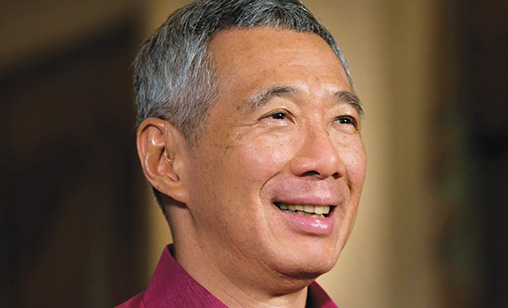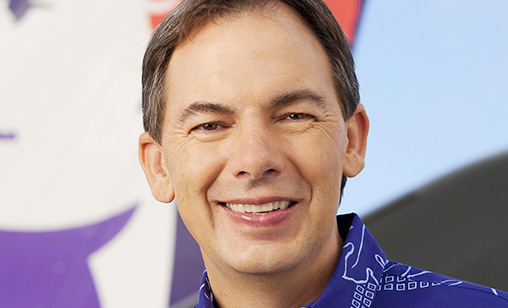News Backgrounder
Is U.S. closing down on global open skies?
Asia-Pacific voters may have no say in the upcoming U.S. elections, but the outcome could have serious implications for the region’s economies and its airlines. Washington is under increasing pressure to roll back its open skies policy, fueling fears global liberalization of aviation is under threat.
July 1st 2016
CEO Qantas International and Freight, Gareth Evans appears to have no apparent concerns about the U.S. Department of Transportation’s (DoT) slow response to approving a joint venture between the Australian carrier and its U.S. partner, American Airlines. Read More » Some industry observers think he should.
The partnership has been approved by the Australian and New Zealand regulators, but to date there has been no news from Washington D.C. on a positive signing. At the International Air Transport Association (IATA) annual general meeting in Dublin last month, Evans was pragmatic about the delay.
 |
| Singapore’s prime minister, Lee Hsien Loong: Visiting the U.S. in August to conclude critical trade and liberalization agreements before the November presidential election |
“We are not in daily contact with them (the DoT), but we are in reasonably regular contact with them. I think the work load they have over a range of different approvals is partly the issue. There’s no hard and fast date,” he said.
“We would have liked the joint venture to have been approved earlier, but the Americans are working through the process and we’re looking forward to hearing something in the not too distant future.”
If it was simply that U.S. regulators are snowed under with work – during a contentious presidential election campaign – then it could quite rightly be an administrative delay.
But in recent months, industry analysts have been wondering if the U.S. is pulling back from the global Open Skies policy it has been pursuing for years.
A case in point is the very public dispute between Gulf carriers – Emirates Airline, Etihad Airways and Qatar Airways – and America’s big three airlines, United Airlines, Delta Air Lines and American Airlines, about subsidies the Middle East airlines allegedly receive from their governments.
To date, there is no happy ending in sight. Instead, domestic U.S. politicians and unions leaders are arguing that U.S. open skies is costing the nation jobs.
In Dublin, Ireland’s new transport minister, Shane Ross, in the opening address at the IATA gathering fired a broadside across the Atlantic when he warned the U.S. against reversing airspace liberalization between the U.S. and Europe.
His particular beef was the delay in granting Norwegian Air International rights to launch flights between Cork and Boston. “The airline is still waiting for a permit from the U.S. authorities. Representations on this issue have been made at the very highest level and we’re still waiting. It’s extremely frustrating in this new era of liberalization,” he said.
While that may be happening on the other side of the world, one established Southeast Asia- based aviation analyst believed the region’s airlines should be extremely worried about the potential damage that could be done by a U.S. liberalization roll-back or an election outcome that gives Donald Trump the U.S. presidency.
| 'We’d have liked the joint venture to have been approved earlier, but the Americans are working through the process and we’re looking forward to hearing something in the not too distant future' |
| Gareth Evans CEO Qantas International and Freight |
Head of Endau Analytics, Shukor Yusof, said Trump has promised, if elected, to opt out of the Trans-Pacific Partnership Agreement (TPPA), the groundbreaking regional free trade deal concluded last October between the U.S., Australia, Brunei, Canada, Chile, Japan, Malaysia, Mexico, Peru, New Zealand, Singapore and Vietnam.
TPPA has huge job creation potential across the region’s economies, including at airlines. “It should be a worry because the TPPA has not been ratified and Trump has said he is going to dump it. It is a very serious concern because it has some bearing on aviation and on the transportation industry,” said Shukor.
With the big American airlines seeking curtailment of Gulf airlines’ access to the NorthAmerican market, there is also a belief they may apply that same political pressure to contain Mainland Chinese airline trans-Pacific expansion.
From this year, Chinese airlines have flown more passengers between China and the U.S. than U.S. airlines. China’s major carriers have made it clear they are intent on expanding their international reach much more rapidly than they have done in the past.
At present, their growth is being held back by restrictive traffic rights in France, Germany and more recently in the U.S.
The U.S. has more than 100 liberalized air services agreements in place, but it is reported to be reluctant to negotiate an open skies treaty with Beijing. “There is no open skies between China and the U.S. because talks have stalled. What is happening in America makes it less likely to happen, especially with the uncertainty surrounding the election,” Shukor said.
Nothing can be ruled out, he added. Singapore, which is usually three or four steps ahead of everybody else, is now analyzing the impact the U.S. election will have on ASEAN (Association of Southeast Asian Nations) and Singapore itself, he said, especially as ASEAN has just introduced its own open skies policy.
He said Singapore’s prime minister, Lee Hsien Loong, will visit the U.S. in August, apparently in an attempt to conclude critical trade and liberalization deals before any change of government. One of the key items on the agenda in talks with outgoing President Barack Obama will be the TPPA.
 |
| 'U.S. protectionism will “perhaps not be done as explicitly as before, in the 1980s, but actually done implicitly, through lack of access to routes, lack of access to airport slots, lack of access to airport facilities” ' |
| Mark Dunkerley CEO Hawaiian Airlines |
In the U.S., pressure for a roll-back in liberalization is not universal. Several smaller carriers have sided with the Gulf airlines in the dispute. But Hawaiian Airlines chief executive, Mark Dunkerley, speaking to Orient Aviation in Dublin, believed there was “growing pressure” in the U.S. to pull back on liberalization.
“It needs to be resisted,” he said. “We are very much committed, as a small airline, on developing new products and ideas and being able to grow. We are focused on an environment in which markets are opened rather than closed so the large airlines don’t become so dominant that they stifle competition and innovation.”
He sees early signs there will be pressure to re-regulate air traffic, which he said amounts to protectionism. “And not perhaps done as explicitly as before, in the 1980s, but done implicitly through lack of access to routes, lack of access to airport slots, lack of access to airport facilities,” he said.
“All of these things, the approval of joint ventures between dominant airlines on both ends of routes, all of these things represent barriers to competition, barriers to industry growth and barriers to innovation.”
While it awaits U.S. approval for its trans-Pacific partnership, Qantas said the benefits of the relationship were clear. “We have a much better spread of destinations across the Pacific. We are seeing the relationship with American starting to stimulate some inbound traffic to Australia,” Evans said.
“It gives us better connectivity beyond the various points in the U.S. for Australian travelers travelling the U.S. We have American adding additional services into New Zealand so the benefit to consumers is clear.”
Besides, Evans pointed out, the position in the Pacific already is one of partnerships and Qantas is not any different. “You have Air New Zealand partnered up with United, Delta partnered up with Virgin [Australia] and American with us,” he said.